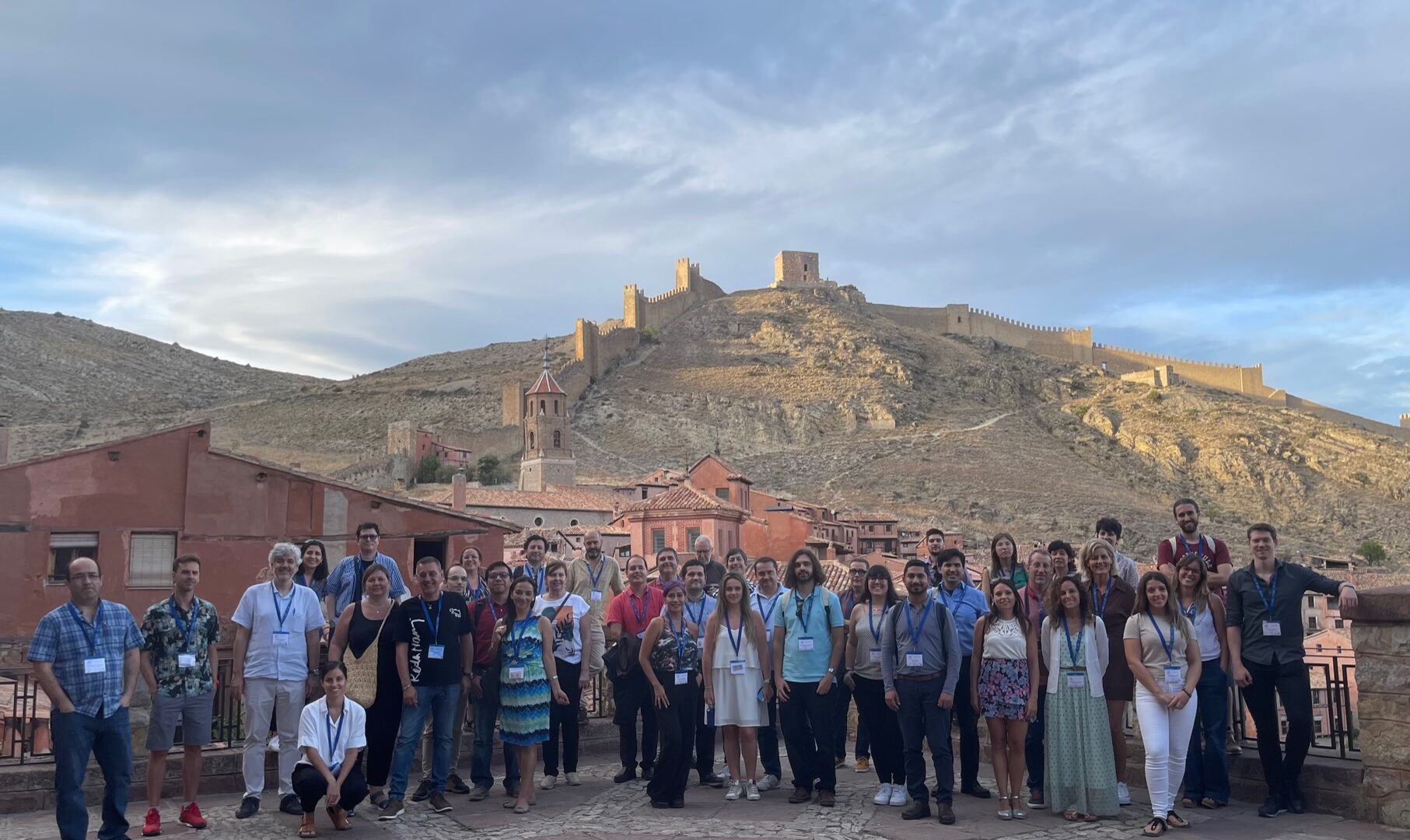From September 7 to 9, the XXII edition of the International Congress of Human-Computer Interaction. It has been organized by the research groups AffectiveLab and EduQTech from the University of Zaragoza. The president of the congress, Jesus Gallardo, and committees have achieved a successful congress both from the point of view scientific, as well as from the point of view of social activities. It was the first time since 2019 that this congress was held 100% face-to-face, after the 2021 edition, held in Malaga as part of the Congress Computer Spanish, will be carried out in a hybrid way. This year, the congress hosted also the celebration of the Rehab workshop, on research in ICT for rehabilitation,
thus celebrating its sixth edition. A total of 70 attendees attended the Teruel campus of the University of Zaragoza to participate in the event, which was organized by researchers from the University School Polytechnic of Teruel with the support of the Antonio Gargallo University Foundation. The sessions took place in the building of the Vice President for the Teruel campus. The themes of the sessions covered topics such as user experience, affective computing, art interactive, accessibility, among others. The Engendering session was also held for yet another year Technologies, which aims to explore equal participation in education, design, production and use of technology. Three invited presentations were held within the framework of the congress. The first was the duo artist formed by Varvara Guljajeva and Mar Canet, who reflected on the application of artificial intelligence techniques for the generation of artistic works. Thursday at Tomorrow it was the turn of Andrés Lucero, who attended the conference within the program ACM Distinguished Speakers. Lucero, a researcher at Aalto University in Finland, tried topics such as game and gameplay concepts and animal-computer interfaces. Finally, the third invited talk, within the framework of the Rehab workshop, was that of Manuel Ortega, professor at the University of Castilla-La Mancha and one of the pioneers in investigation in IPO in Spain. Ortega reviewed the different lines of work of his research group applied to the field of rehabilitation.
Other scientific activities that were carried out in the congress were the doctoral colloquium, the presentation of demonstrations, the presentation session of groups and projects of research, and the session of companies and IPO, in which representatives of four companies from Teruel (Sóteon, Edison Desarrollos, Turomás and Fertinagro Biotech) held different talks in which they faced the Human-Computer Interaction from a business point of view. Also, the congress welcomed the celebration of the ordinary and extraordinary assemblies of AIPO, leaving of the latter, the new board of directors of the association, led again by Professor Lourdes Moreno, from the Carlos III University of Madrid. Finally, at the closing of the congress the different prizes that AIPO grants annually were awarded: the Jesús Lorés for the best article of the congress, the Mari Carmen Marcos award for the best article of the Engendering Technologies workshop and the awards for the best Final Degree Projects and Master. The event ended by handing over to Lleida, which will be the city that hosts the next conference edition.

